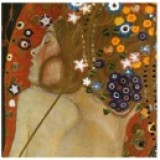Daily Sip - Hunger Camp at Jaslo
-
sibyllene
13 years agoWislawa Szymborska - Hunger Camp at Jaslo
Write it. Write. In ordinary ink
on ordinary paper: they were given no food,
they all died of hunger. "All. How many?
It's a big meadow. How much grass
for each one?" Write: I don't know.
...History counts its skeletons in round numbers.
A thousand and one remains a thousand,
as though the one had never existed:
an imaginary embryo, an empty cradle,
an ABC never read,
air that laughs, cries, grows,
emptiness running down steps toward the garden,
nobody's place in the line.
We stand in the meadow where it became flesh,
and the meadow is silent as a false witness.
Sunny. Green. Nearby, a forest
with wood for chewing and water under the bark-
every day a full ration of the view
until you go blind. Overhead, a bird-
the shadow of its life-giving wings
brushed their lips. Their jaws opened.
Teeth clacked against teeth.
At night, the sickle moon shone in the sky
and reaped wheat for their bread.
Hands came floating from blackened icons,
empty cups in their fingers.
On a spit of barbed wire,
a man was turning.
They sang with their mouths full of earth.
"A lovely song of how war strikes straight
at the heart." Write: how silent.
"Yes."
-------------------
A darker read, submitted by our poetic patron, Narphangu. -
Narphangu
13 years agoYay! Thanks for putting it up. :)
-
Jordan
13 years agoFantastic.
-
Narphangu
13 years agoIt's true... And sad. We use numbers to make things round and easy to understand, the irony of course being that death is perhaps the one thing we can never truly grasp or rationalize out.
I think my favorite thing about this poem is how it starts and how it ends. At the beginning, "write it", a short, direct command that brings to mind the brutality and force of the guards to the prisoners. Then at the end, "yes", an aknowledgement, optimistic, but it says so much. Yes this happened, yes we remember it, but also yes, we have a voice and we use it to direct our future. Very human. Very bold. -
silvershoes
13 years agoSo sad... the numbers bit is what got me. Can't seem to wipe the frown off my face :(



